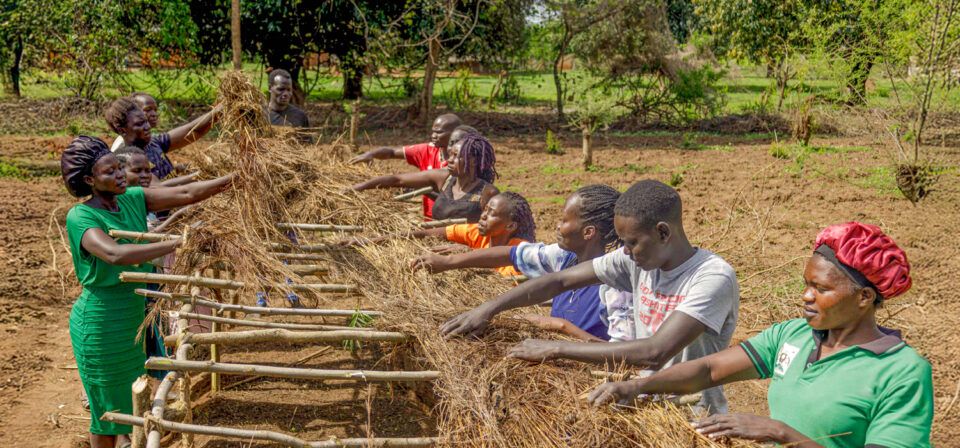 Stories
Stories
August 25, 2025 • 2 min read
In Bigongo Village, Kitgum District, a small church fellowship of young people grew into the Future Masters Youth Group, a collective that reshaped their community through farming, savings, and skills development. With support from GOAL Uganda’s Markets for Youth Program, the group now counts 30 members, 23 women and seven men, who are combining financial literacy, agronomy training, and community dialogue to create lasting change. From planting soybeans and maize to pig farming and group savings, members are learning by doing, adapting to challenges, and investing in their future.

Kitgum District in northern Uganda faces persistent challenges: high youth unemployment, limited income opportunities, and migration to urban areas in search of work. Many young people rely on subsistence farming or remain dependent on family support, with few structured opportunities to build skills or generate income. Against this backdrop, GOAL Uganda’s Markets for Youth Program, in partnership with Mastercard Foundation, civil society organizations and private sector partners, has been working to connect young people to skills, financial systems, and networks. The Future Masters Youth Group is one of the program’s success stories, showing how collective action can open pathways for youth to thrive in their communities.
From Fellowship to Organized Action
The group’s beginnings were modest. “We started as 10 committed youth from the church,” recalls Yoweri Ojwang, one of the group’s youth champions. “At first, we just wanted to save money and support each other.”
The initial Village Savings and Loans Association struggled without clear structures, and some members dropped out. Progress came in 2023, when GOAL Uganda connected the group with partners such as MUCOBADI, 49ers, Mabeere Group of Companies, Nile Forestry, and Centenary Bank. “They profiled us and introduced us to structured savings and skills training,” says Ojwang. “That’s when we really started to grow.”
Through training in financial literacy, group management, business planning, and agronomic practices, the Future Masters gained momentum. They also held community conversations to address local issues, helping to reduce insecurity and school dropouts among young girls with the support of local authorities.
Practice and Perseverance
Armed with new knowledge, members turned theory into practice. They planted soybeans, maize, and vegetables using improved seed, agrochemicals, and techniques like spacing, line planting, and post-harvest handling.
Group chairperson Dennis Nyeko admits his outlook shifted completely. “Where I grew up, we didn’t farm. But after joining the group and seeing the results, I planted soybeans myself. From just 5kg of seeds, I harvested 72kg. The next season, I doubled the yields.”
Not every effort succeeded at first. Cosmas Adyebo planted maize on one acre but harvested only 450kg after delaying planting and weeding. “It wasn’t what I expected, but I learned. Next time, I’ll follow all the practices they taught us,” he reflects.
Members also highlight the value of financial partnerships. “Most of us feared money,” says Ojwang, “but working with Centenary Bank has boosted our confidence. We are now processing a group loan of UGX 7,000,000 (US $1,988).”
Looking Ahead
The group’s next steps reflect both ambition and collective strategy. They are establishing a group vegetable project with a nursery bed already prepared, plan to purchase irrigation equipment, and are strengthening their savings culture.
For young people in Kitgum facing limited opportunities, the Future Masters Youth Group shows how access to skills, resources, and networks can unlock change. As they continue planting, both crops and ideas, they are creating a more resilient future for themselves and their community.

